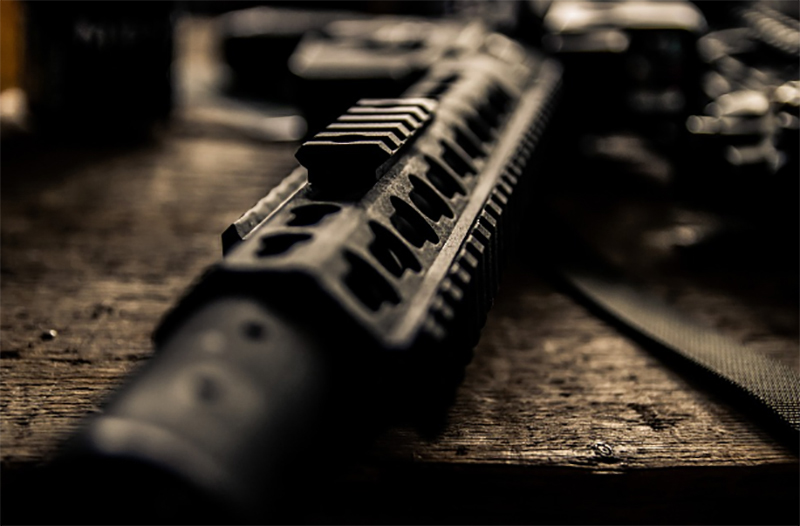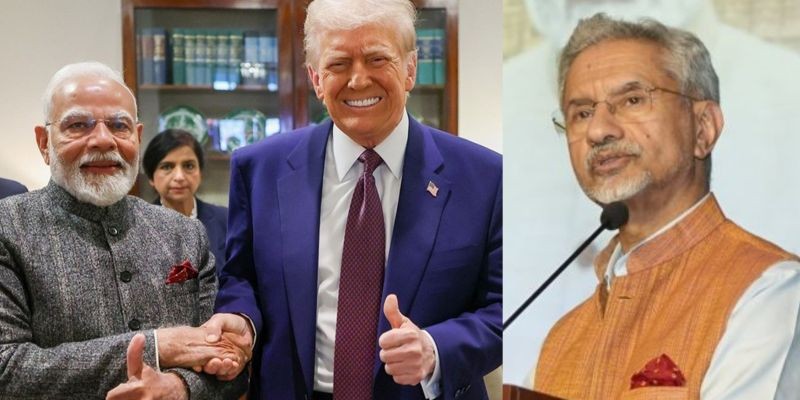Islamist Terrorism: Radical Threat

On April 8, 2023, the Assam Police arrested three active suspects linked to the banned Islamist radical Popular Front of India (PFI) and its student wing, Campus Front of India (CFI), from the Barpeta District of Assam. The arrestees were identified as PFI ‘state secretary’ Zakir Hussain, PFI cadre Abu Sama, and CFI National Treasurer Shahidul Islam. INR 150,000 in cash, four mobile phones and Social Democratic Party of India (SDPI) leaflets, were recovered from them.
Reports claim that, after the Union Ministry of Home Affairs (UMHA) ban on PFI on September 27, 2022, its members joined SDPI and were very active in Karnataka, where State Assembly polls are scheduled to be held on May 10, 2023. The SDPI, reports indicate, is planning to contest at least 100 seats out of the 224 in the Karnataka State Assembly.
On March 18, 2023, the National Investigation Agency (NIA) arrested Mohammad Irshad in Phulwarisharif, Patna District, Bihar PFI case.
The case pertains to involvement of accused/suspected persons, associated with the PFI, in unlawful and anti-national activities, who had assembled in the Phulwarisharif area of Patna.
The case was initially registered as a First Information report (FIR) on July 12, 2022 at Police Station Phulwarisharif and was re-registered by the NIA on July 22, 2022. Mohammad Irshad is the 13th person to be arrested in this case.
On March 4, 2023, Thufail M. H., the Kodagu District Head of PFI Service Team (Hit Team) and former PFI District Secretary of Kodagu District, Karnataka, was arrested by the NIA from his hideout in the Amaruthahalli area of Bengaluru City, Karnataka.
Tufail was wanted for the murder of Praveen Nettaru, member of the Bharatiya Janata Yuva Morcha (BJYM), the youth wing of the Bharatiya Janata Party (BJP). Nettaru was murdered by PFI cadres in July 2022 in the Bellare village of Sullia Taluk (revenue unit) in the Dakshina Kannada District.
In January 2023, the NIA filed charge-sheets in the case against 20 accused, before the NIA Special Court, Bengaluru, including six absconding accused. Thufail M. H. had played a significant role in PFI's larger conspiracy to murder leaders of a particular community.
He also provided shelter and safe harbor at the Ashiyana residency in Koppa Village, Mysuru District, to the three assailants in this case, who had recced and then hacked Nettaru to death.
In 2022, over 277 PFI cadres were arrested. While the NIA arrested 60, different State Police Forces arrested over 217 PFI cadres, including over 174 on September 27, the day on which the PFI was banned.
Between September 28 and December 31, 2022, different State Police Forces arrested at least 13 PFI cadres, while the NIA arrested 11. In 2023, at least 16 PFI cadres have been arrested – six by the NIA and 10 by different State Police Forces (data till April 9). It is pertinent to recall here that the NIA is investigating 19 PFI-linked cases and, till April 9, 2023, the Agency has charge-sheeted 105 accused in these cases.
While declaring the ban on the outfit, on September 27, 2022, the UMHA observed,
The Popular Front of India (PFI) and its associates or affiliates or fronts have been found to be involved in serious offences, including terrorism and its financing, targeted gruesome killings, disregarding the constitutional set up of the country, disturbing public order etc. which are prejudicial to the integrity, security and sovereignty of the country.
On March 21, 2022, the Tribunal, constituted under the Unlawful Activities (Prevention) Act (UAPA), confirmed the UMHA’s September 27, 2022, notification declaring the PFI as an unlawful association and banning it for five years. PFI, a radical Islamist group, was formed in 2006.
Trans-border Islamist terrorist groups, mainly the Bangladesh-based Jamaat-ul-Mujahideen Bangladesh (JMB) and Ansar al-Islam/Ansarullah Bangla Team (ABT), constitute another security challenge. According to the SATP database, at least 12 cadres/associates of these two outfits were arrested in 2022. In 2023, another five cadres have already been arrested.
On March 4, 2023, the special branch of the Assam Police arrested five people, including a Bangladesh national, Saiful Islam alias Haroon Rashid alias Mohammed Suman, for their alleged links with Ansar al-Islam.
They were arrested from Barpeta, Howly and Kalgachia, all in Barpeta District. Saiful Islam had illegally entered India and was working as a teacher in the Dhakalipara masjid. Saiful Islam had successfully indoctrinated and motivated four others to join the module, with a view to develop the Barpeta District of Assam as a base for jihadi work and activities of Al-Qaeda and its related organisations.
Reports indicate that Ansar al-Islam was planning to form three major units in India – Madu (cadres having basic training on jihad and propagating ideology); Ikhwan (recruiters and fund raisers, not directly working under Ansar al-Islam’s aegis) and Tafia Jamaat (the senior-most leaders/final decision makers), primarily based in Mazahir Uloom Madrassa in Saharanpur, Uttar Pradesh.
Global Islamic terror outfits – Islamic State and Al-Qaeda – despite having failed to carry out any significant attack since their ‘entry’ into India, continue with their efforts. At least two Islamic State cadres were arrested in 2022. Seven Islamic State cadres have already been arrested in 2023.
Most recently, on January 10, 2023, the NIA arrested two Islamic State operatives – Mazin Abdul Rahman and Nadeem Ahmed K.A from Karnataka.
Earlier, on January 5, 2023, two Islamic State operatives – Reshaan Thajuddin Sheikh and Huzair Farhan – had been arrested in Karnataka.
All four were arrested in connection with the Shivamogga Islamic State Conspiracy Case, a plot hatched by the accused, Syed Yasin and Maaz Muneer Ahmed (both arrested) and Shariq (absconding).
Investigations revealed that Maaz Muneer Ahmed had radicalised and recruited Mazin Abdul Rahman, while Syed Yasin radicalized and recruited Nadeem K.A. for terrorist activities of the Islamic State in India. Reshaan Thajuddin was radicalised by Maaz Muneer Ahmed. Reshaan Thajuddin Sheikh and Huzair Farhan Baig received funds from their Islamic State handlers through Crypto-wallets.
The accused explored targets and attempted/committed acts of sabotage/arson, as part of the larger conspiracy to further the activities of the Islamic State. Further investigations in the case are in progress.
Meanwhile, on January 23, 2023, the Islamic State released the first edition of its new magazine Seerat ul-Haq. The six-page inaugural issue of this anti-India propaganda magazine, targets Indian Muslim political leaders and groups.
Al-Qaeda has also continued with its efforts to establish a network and to provoke violence, in India. On August 30, 2022, the Assam Police arrested an Al-Qaeda in the Indian Sub-continent (AQIS) terrorist, Amzad Ajmal Hussain, from Guwahati, for his efforts to spread the AQIS network in the area. Further, on May 2, 2022, As Sahab Media Subcontinent, the media wing of AQIS, released a message in Hindi, Gujarati and Arabic, on the occasion Eid-ut-Fitr. The message advocated that Muslims of the subcontinent ‘follow path of jihad to establish Sharia law in the Subcontinent.’
Meanwhile, four fatalities were recorded in violence linked to Islamist terrorism in India (outside Jammu and Kashmir, J&K) in 2022. There was no such fatality in 2021. This is the highest number of fatalities recorded in a year in such violence since 2016, when there were 13 such fatalities, including 11 terrorists. The four fatalities in 2022 included the following:
June 21: Umesh Pralhadrao Kolhe was killed in Amravati (Maharashtra) while he was returning to his home. According to the NIA, the incident was part of a larger conspiracy by a group to strike terror amongst a section of people, and to promote enmity on the grounds of religion, which could culminate in a terrorist act.
June 28, 2022: Kanhaiya Lal Telli, a tailor was killed in Udaipur, Rajasthan. The two accused who had inflicted multiple injuries to the victim with sharp weapons had also circulated a video of the criminal act on social media, claiming responsibility for the murder in order to trigger panic and strike terror among the masses across the country, according to the NIA.
October 23: An LPG cylinder exploded inside a Maruti 800 in front of the Arulmigu Kottai Sangameshwarar Thirukovil temple at Eswaran Kovil Street, Ukkadam, Coimbatore, Tamil Nadu. One person was killed and a shop was damaged. Investigations determined that the person killed was the owner of the car Jamesha Mubeen, a resident of Ukkadam. Several bomb-making materials were subsequently recovered from his house. The Police disclosed that Mubeen had planned to set off the blast in the centre of the city, but backed off after seeing the checkpoint. According to preliminary investigations, after taking bayath/oath to the Islamic State, Mubeen was planning to carry out a suicide attack and cause extensive damage to symbols and monuments of a particular religious faith, with the intention of striking terror among a particular community.
A 21-year-old man was beheaded in Delhi on December 14-15, 2022, and a 37-second video of the killing was sent by the killers to their Pakistan-based handler, Sohail. The incident came to light on January 14, 2023, when the Delhi Police recovered two hand grenades and a man's dismembered body, following the interrogation of two terrorist suspects, identified as Jagjit Singh alias Jagga, and Naushad, who had been arrested on January 12, 2023.
In between, on November 19, 2022, an Improvised Explosive Device (IED) blast took place in a moving auto rickshaw near a bus stop in front of Rohan Square Apartments in Mangaluru City, Karnataka, injuring two persons. Investigations found that one of the injured was the main accused, Mohammed Shariq, a resident of Shivamogga District, Karnataka, and he was carrying the IED in a pressure cooker with the intention to kill others. The driver was also injured in the blast. According to the Police, Shariq was "inspired by ISIS terror group" and used the Dark Web to contact his handlers.
Meanwhile, on April 2, 2023, a suspect splashed an inflammable liquid on his co-passenger inside D1 compartment when Alappuzha-Kannur Express train reached the Korapuzha railway bridge after crossing Kozhikode city, Kerala, and set him on a fire resulting in burn injuries to at least eight persons. Three passengers, including a child and woman, were killed after they jumped out of the train to escape the fire. Though the suspect then managed to escape, he was later arrested on April 5 from Ratnagiri District in Maharashtra and was identified as Shahrukh Saifi, a Delhi resident. The NIA in its preliminary report to the UMHA has said that the act of arson may have been a terror attack.
As is evident, these violent incidents were carried out by elements who had been radicalized in the recent past and were not trained terrorists, or members of established outfits such as, inter alia, the Lashkar-e-Taiba (LeT), Hizb-ul-Mujahideen (HM), Jaish-e-Mohammad (JeM), Harkat-ul-Jihad-al-Islami (HuJI), and the Students Islamic Movement of India (SIMI)/Indian Mujahideen (IM), working under the aegis of Pakistan’s Inter-Services Intelligence (ISI). The last such violent incident recorded outside J&K involving cadres of an established Islamist terrorist formation was on October 31, 2016, when the Anti-Terrorist Squad of Madhya Pradesh Police killed eight suspected SIMI cadres in Bhopal. One Policeman was also killed. The last major incident (resulting in three or more fatalities) was reported way back on October 27, 2013, when eight people were killed and another 63 injured in six serial bomb blasts near Gandhi Maidan, the venue of the then BJP prime ministerial candidate Narendra Modi's rally in Patna. Later, in 2021, an NIA court convicted nine SIMI cadres for the blasts.
J&K, of course, remains the epicentre of the Pakistan-backed Islamist terrorist movement in India, though terrorist activities have substantially been contained. Indeed, after reaching a high of 4,011 in 2001, overall fatalities registered a continuous decline in successive years till 2012, when they touched a low of 121. Since then, fatalities have maintained a cyclical trend, declining for two consecutive years in 2021 (274 fatalities) and 2022 (253 fatalities). There were 321 fatalities in 2020. Overall fatalities remained in four digits for 17 years, between 1990 and 2006. In 2023, till April 9, J&K has recorded 18 fatalities, including eight civilians, one trooper and nine terrorists.
While the Security Forces have succeeded in reducing the threat from Pakistan’s terrorist proxies, both in J&K and across the rest of the country, the proliferation of the politics of polarization is creating new opportunities for radical Islamist elements, mobilized or inspired by terrorist groups, to create an environment of insecurity. While it is imperative for the government to take all necessary measures to counter radicalization, this is a challenge within an environment where divisive politics continues to pay ample electoral dividends.




